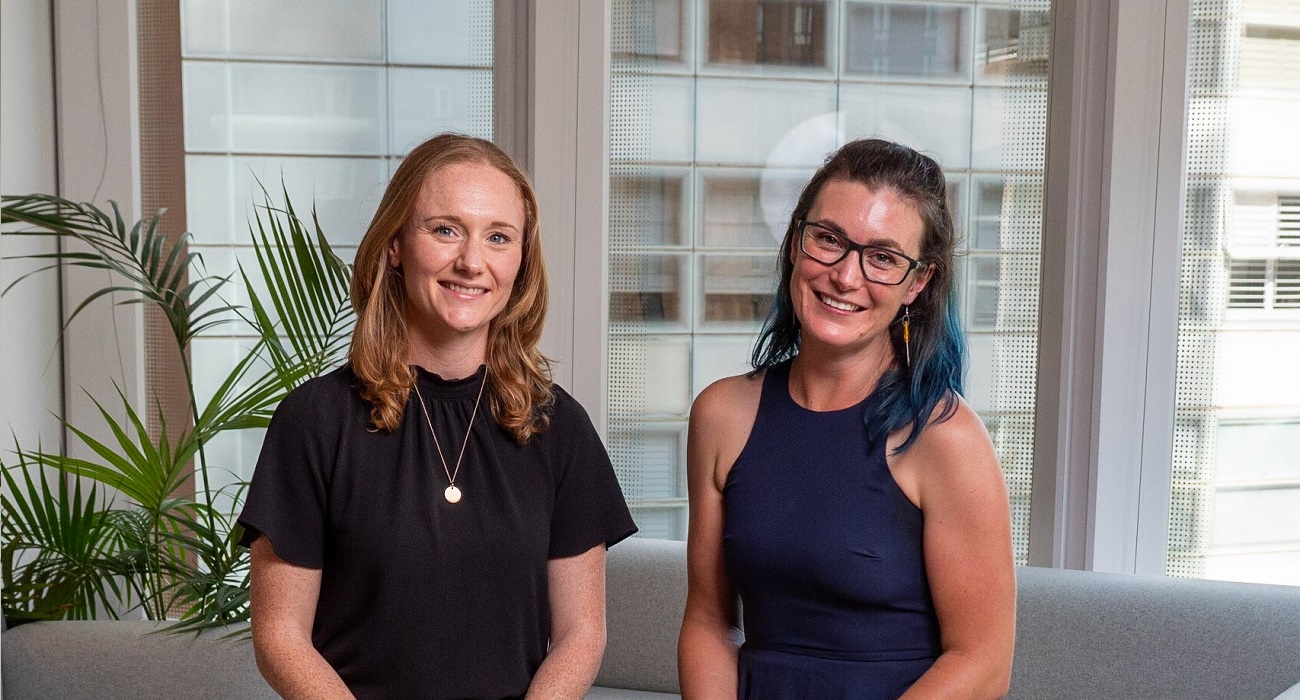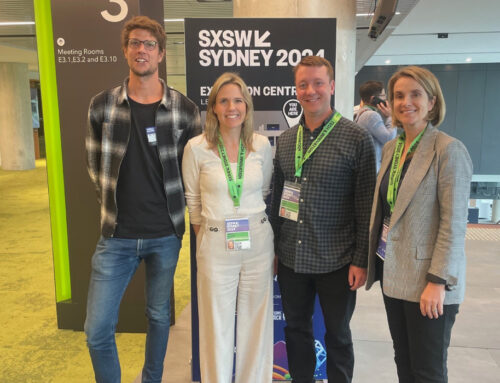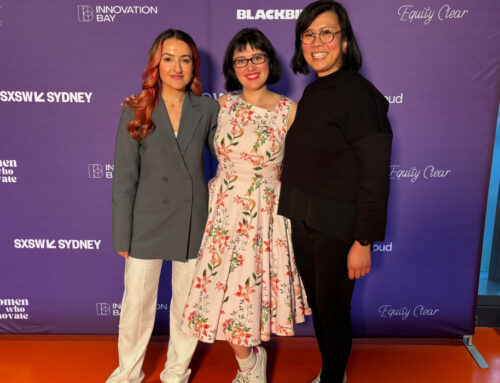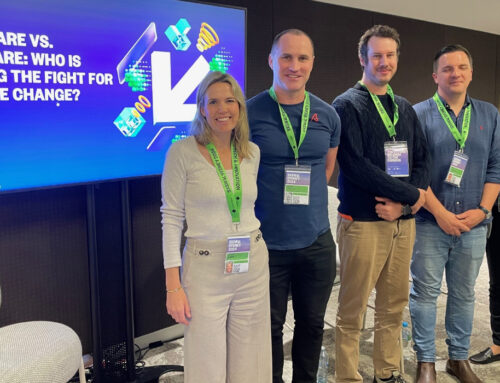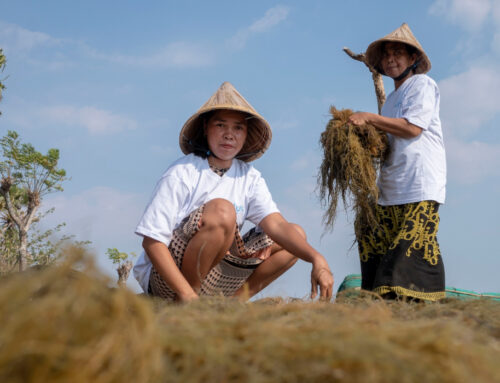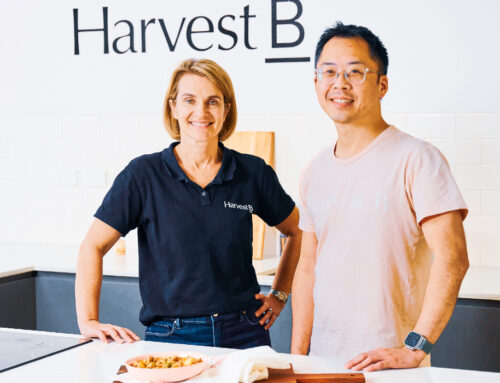Meet Oli, an innovative mobile device developed by Baymatob, one of Alberts portfolio companies.
Did you know that when a woman goes into labour the devices used to monitor her are largely the same as those used on her grandmother in the 1960s? And did you know that a new mum dies every seven minutes from post-partum haemorrhage (PPH), the leading – and largely preventable – cause of maternal death globally?
Australian engineer and PhD in medicine Dr Sarah McDonald has dedicated the past nine years of her life to developing a game-changing new wearable device that provides breakthrough technology to alert clinicians in good time if a woman in labour is likely to experience PPH. It aims to be, quite literally, life-saving.
“We’ve [created] an opportunity to transform and reinvent a natural part of health care – pregnancy and labour – that has been essentially ignored, to save a lot of lives, to [prevent] a lot of mental health struggles and other long-term [adverse] health impacts,” says Tara Croft, CEO of Baymatob, the Australian company developing the device.
Named ‘Oli’ in honour of Sarah’s second child, it has already been granted breakthrough device designation from the US Food and Drug Administration (FDA) just four years after Sarah founded Baymatob (Baby, maternal, observations) in 2017. From one founder (now chief visionary officer), Baymatob has quickly expanded into a team of 22 female-dominated, diverse, talented and passionate individuals collectively driven to radically reduce the shamefully high rate of PPH, with plenty more trailblazing maternal and fetal health outcomes to come, all through one device. But first some background.
A mechatronics engineer specialising in sensors and signals, Sarah instinctively knew something was very wrong while delivering her second child in 2013, after experiencing a textbook first labour and birth. Guided only by the limited data available to them, the clinicians argued everything looked fine. Sarah was left traumatised by the experience and decided to devise a product that could provide more information around labour.
She undertook a PhD in medicine at the University of Sydney, developing the first prototype of Oli in 2015 and trialling it on 87 women in labour at the Royal Prince Alfred Hospital in Sydney. Just seven years later Baymatob has completed a 500-patient pilot study of Oli through Royal North Shore Hospital and the Royal Hospital for Women, one of the largest maternal health device studies in the region. Oli is now on track to be available commercially to hospitals in Australia and the US in 2025.
PPH occurs when a mum experiences excessive blood loss following the birth of her baby, which can quickly lead to death. In the US 3.6 in every 100,000 births results in the mother dying from PPH. Of those who survive, serious and debilitating ongoing physical and mental health conditions will affect the mums in one to three of every 100 births; while abnormal postpartum blood loss and its accompanying adverse health impacts occurs in a significant portion of the postpartum population, estimated to be upwards of 20 percent. PPH doesn’t just have physical and mental health implications: in Australia it costs taxpayers $135 million p.a. while in the US the figure is much higher – an estimated USD2 billion p.a. “It’s getting worse year on year in the US, more mums are dying, they’re calling it a ‘maternal health crisis’,” says Tara. “We feel we can have life-changing impact there.”
It is staggering to think there have been basically no medical advances in maternal and fetal monitoring in the past 60 years, While the technology has improved, labour is still only measured by maternal heartbeat, fetal heartbeat, and contractions. “We live in a world where unfortunately a lot of technology has been invented by men, and people solve problems by experience,” says Tara.
There is currently no way of knowing if a mum is about to haemorrhage, so clinicians are forced to watch and wait, with time a critical element in responding to and treating PPH. Oli aims to change all that.
A wearable device, Oli is a waterproof AI-guided wireless maternal and fetal monitoring and diagnostics device that sits on the mother’s abdomen and can provide early and reliable predictions of future complications for mum and bub. “What we’re doing is providing an early warning system to [alert clinicians] a woman is about to haemorrhage. It gives them the opportunity to be ready with drugs, devices and various preventative measures,” says Tara. Oli aims to diagnose PPH at last one hour prior to any post-partum blood loss.
The data from the 500-patient study also provides baseline data for the 15 maternity applications Oli plans to ultimately deliver, providing early warning for a host of treatable maternal and fetal health complications. A remote version is also in the pipeline, so the device will be available to all socio-economic and remote populations. “It shouldn’t matter where you’re born or live, you should have the right to access life-saving technology,” Tara says.
A biomedical engineer, Tara joined Baymatob in 2019 following a successful career at ResMed and Nanosonics, where she helped grow the company from grassroots to the ASX Top 200 $2.4bn business it is today. With Sarah, Tara leads a company of 22 proudly diverse team members, two-thirds of whom are female, with 16 languages spoken between them all.
“Having this diverse team and being able to draw upon different ways of thinking and life histories has been really important in us getting our tech and strategy to where it is today,” says Tara. “We’re doing something no-one else has ever done before so we have to think creatively, and if we have carbon copies of people sitting around a table we’re never going to come up with creative ideas and solutions to fix the issues.”
Last year Baymatob underwent a successful Series A capital raise of $4.565 million in March, led by Australian Unity’s Future of Healthcare Fund. Alberts Impact Ventures was a founding investor in Baymatob, believing the positive values Baymatob and Oli embody – from a mental health, equality and diversity point of view – align perfectly with its own. “What Baymatob is doing is truly transformative,” says Alberts Impact Ventures investment manager Lisa Fedorenko. “One of the big insights when doing due diligence into this business was that the user experience of childbirth has [had little] focus on the mother, it’s all focussed around the baby. [Oli] is a clear example of something that is designed around women. It’s a game-changer. And we love the founders [and team]! For Baymatob and healthcare in particular it’s so important to have diverse voices around the table because different cultures have different approaches. It means when they’re making the decisions they can design with equality right from the start.”
